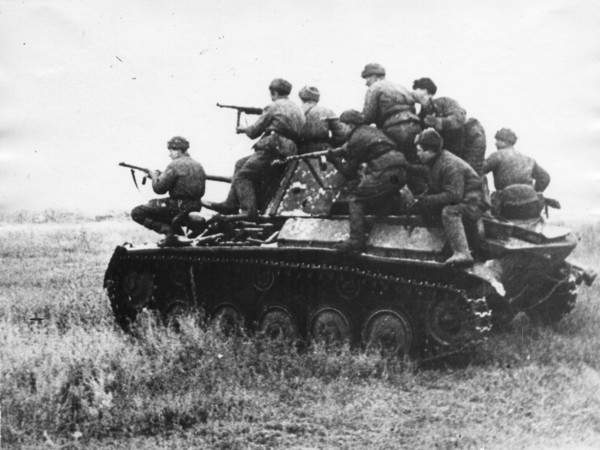It would require a lot of information and analysis that are both well beyond me, but I’d expect that any Soviet thrust to the West against the Western Allies would have lengthened Soviet lines of communication dangerously and, despite the USSR’s huge productive capacity in the final years of the war, would have been made worse by the withdrawal of all materiel and armed support from the Western Allies.
Against that, the fairly rapid transfer of huge Soviet land and air forces to the Japanese front between May and August 1945 suggests that the Soviets still had a major assault and logistical power after the end of the war in the ETO, although significant Soviet forces had been stationed on the Manchurian front for the duration of and after the end of the European war.
I suspect that this Western Allies / Axis alliance would have occurred very quickly in response to any Soviet attempt to push out the Western Allies. Witness the speed with which the Western Allies, notably the US, exploited and bolstered Gehlen in Germany and did an about face in Japan when in both cases the Western Allies used their former Axis enemies against the perceived threat of Soviet, and later Chinese, communism.
It would have been less remarkable for the Western Allies to ally themselves with former Axis powers in the ETO than it was that the Western Allies actually allied themselves with the Soviets against a common enemy 1941-45 when previously the Soviets were, as the source of exported challenges to and attempts to undermine capitalist democracies, quite reasonably seen in the West as a major threat to the capitalist democracies which included all of the Western Allies.
The Western Allies had more in common with capitalist fascists than communists and would readily have aligned themselves with fascists to defeat a communist advance to the English Channel. Similarly, the civilians in Western Europe were generally much more likely to be fearful of Soviet domination than the liberty brought them by the Western Allies from mid-1944.


